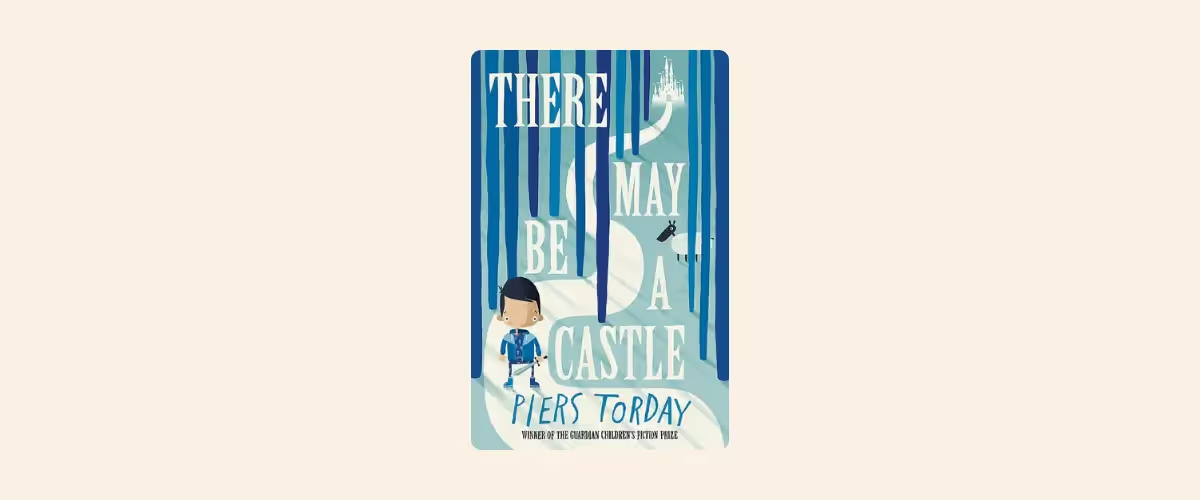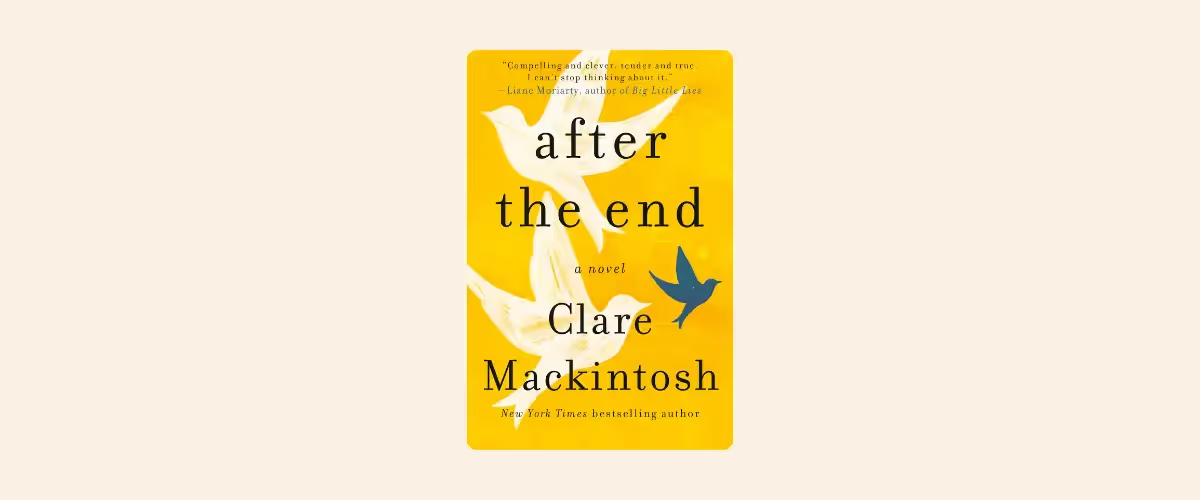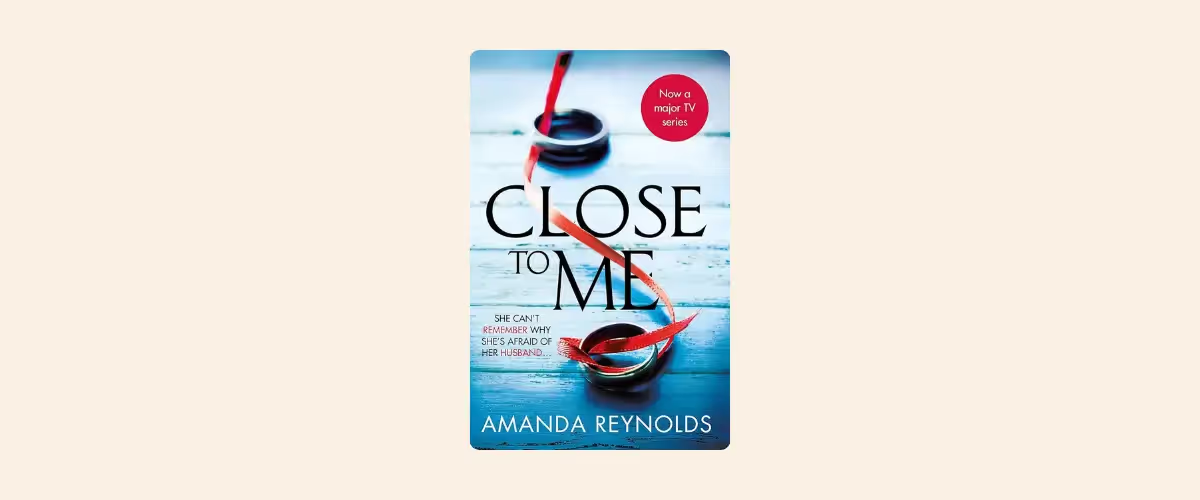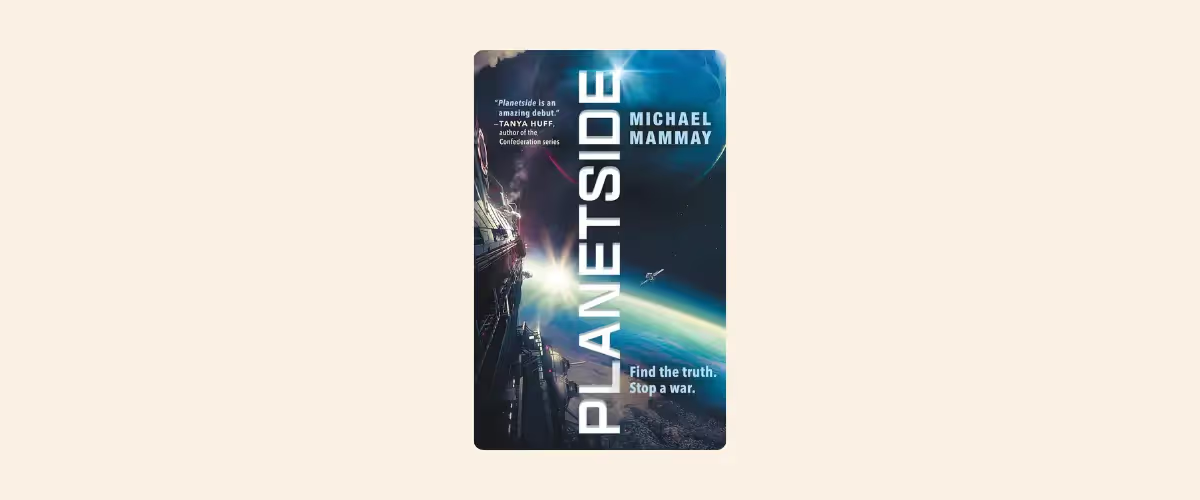You’re ready. You’ve made the commitment and found the time to write a story—but where do you start?
Contrary to what you may have heard, novel ideas rarely appear whole and complete. But that doesn’t mean you can’t begin writing your book! You’ll often find that what you’re writing will change and grow as your story idea develops.
One of the ways we discover what we’re really writing about is through our actual writing. We just need a place to start. A seed of a story idea—something we can plant, nourish, and grow. And what better place to find your story idea than where you are now?
Take a look around. What do you see? What do you hear?
Fascinating story ideas are all around us. We’ve been hearing and telling stories our whole lives. If we think about the kinds of stories we love to read, we can discover the ones we want to write.
In this article, writing coach Gina Sorell shares a three-step process that will help you find inspiration that you can turn into novel ideas, the kind you want to read and write about, as well as the five key elements of interesting stories you should have in your own novels.
.avif)
Before you write: investigate, interpret, ideate
Investigate your reading choices
It’s time to put on your detective hat and get to work!
Your bookshelves are a great place to start. Take a look at the books you enjoyed as a reader. Really enjoyed. Not the books you assumed you should’ve enjoyed or thought were clever, but ultimately abandoned because they didn’t hold your interest.
Pick the books you love. The books that kept you up, turning the pages, the stories that made you disappear into other worlds with characters who stole and broke your heart. You want to focus on the stories that made you feel seen and heard. The compelling books you find yourself recommending to friends and family, choosing for book clubs, discussing with your writing groups, and thinking about long after you’ve put them down. Those are the books you really love.
Now that you’ve set your favorite books aside, it’s time to do a little investigative work.
- Make a list of them.
- Read the back cover of each book and make a note of the theme.
- Is there a common element?
Interpret your reading tastes for helpful insights
Knowing what we like is a great place to start, but now we need to dig a little deeper to understand why we like it. Check your titles.
- Maybe as a reader, you’re drawn to a specific genre.
- Or maybe it’s a world unlike any you’ve ever seen.
- Is it a strong character that lures you in?
- A twisty plot that keeps you on your toes?
- A gripping coming-of-age tale?
- Exotic settings you long to visit?
- A whodunnit that keeps you up at night?
When I look at the books I love, I can see that I’m drawn to those about complicated family relationships and dynamics, personal stories, marriage, career, mid-life, finances, and the elusive work-life balance. In other words, people dealing with relatable issues. I love contemporary books in urban settings that tackle serious themes, but with a gentle touch. Bonus points if the author can make me laugh! I want great dialogue, accessible writing, and a strong voice.
Another way to track our taste in books is to use Storygraph, which helps readers identify their preferences across many genres of fiction as well as by mood, topic, and theme. You’ll notice a pattern emerging in the books you choose.
None of this is to say that you don’t or shouldn’t read outside of your genre, or that you can’t appreciate a great literary work of fiction. Just that there are certain kinds of books that we return to time and again.
This may seem absurdly simple, but as I made that list and my list grew (the true list) it became shockingly apparent to me. Each of them had at their epicenter the sense of failure, a person failing, quietly, and falling away from life until something small gave them a glimmer of meaning.
This insight, my truth, sets me free. It helps me do that most important thing when starting to write: take the pressure OFF! Instead of planning to write a knock-out high-concept fiction book, I am planning to write a quiet failure about a quiet failure. And I just can’t wait.
—Louise Dean
It’s okay to write the kind of book you want to read. You don’t need to be someone else or reinvent the wheel—you’re already qualified! You’re the right person for the job.
Personally, I don’t need a post-apocalyptic society, secret spies, or monsters to get my heart racing. Give me a story about a woman who is struggling to meet the crushing expectations of her personal and professional life, tackling the unwelcome changes of mid-life while trying to pay her bills! It’s no surprise to me that these are the stories I am also drawn to write.
.avif)
Now that I know what I like to read and write, I need the spark of an idea to get me started. I’ve had so many writers ask me: Where do you get your ideas from? It’s a question I love to ask writers as well. So I did! I turned to the brilliant writing coaches and publishing editors at The Novelry—here are some of their stories about where they got the ideas for their incredible novels.
Ideate compelling characters and story premises
It’s time to turn the ordinary into the extraordinary by teaching yourself to spot ideas and inspiration in your everyday world.
Commuting
I was going about my daily life. The story behind This Human Season, which is set in Northern Ireland in 1980 and 1981, came to me on the platform at Clapham North tube station in 2003. I watched a few trains come and go as it dawned on me.
—Louise Dean
Next time you commute, however you do it, take a look around. Imagine where the other passengers are coming from, and where they are going. Are they on their way to a blind date? A job interview? A family reunion? Two lovers in a new city? Maybe there’s someone who has made this same trip for ten years, wearing the same jacket, carrying the same briefcase, packing the same lunch, until something in them snaps, and they decide: Not today. Today will be different. Go on a journey with your characters! Find the hidden gems they are concealing.
.avif)
Dining
Years before I wrote The Bone Shard Daughter, I went out to lunch with some other writer friends at a convention in San Antonio. We went to a food court, where one of my friends ordered Chinese food. She ended up nearly choking on a shard of bone in her lunch, and I started thinking... What if shards of bone were used for magic? I ended up building an entire world and plot around that core idea.
—Andrea Stewart
Food courts, restaurants, and coffee shops are great places to observe people and catch snippets of conversations. As you look for book ideas for your own work, let yourself see familiar places with fresh eyes. You might find a whole new world out there.

Childhood memories
We didn’t have a lot of money growing up, but my mum would always give us change to give to the homeless. She was a money-pinching matriarch, so this always stood out in memory and made me think about the people I was giving money to. What was their life like? What had happened to them? It was this curiosity that drove me to write How to Find Home, a novel about a homeless girl who goes on a Wizard of Oz-like adventure from the Midlands to the English coastline.
—Mahsuda Snaith

A childlike curiosity is a great quality to tap into when creating your own novels. Let yourself dream up new adventures and see where they take you.
When I was 9 years old, I was living in a very remote part of Scotland—the road at the end of my drive stretched into mountains, forest, goats, and wildcats. When I came to writing my debut novel, Pine, I imagined a 9-year-old girl seeing a woman walking on that road, out of the wilderness, looking like she had survived something awful, but that she couldn’t speak and no one knew where she came from.
—Francine Toon

Childhood memories and the people who played a part in them are a great source of inspiration for book ideas. We have the opportunity to examine how events in our past shaped us through the lens of our adult selves and the perspective that comes with age. And no two people remember an event the same way, so it’s a terrific chance to share your unique take on things.

In 1980s America, cafeteria milk cartons featured the pictures of missing children on the back. I used to stare at those blurry black-and-white images, trying to memorize the details in case I ever saw that child in real life, so I could help. I wondered what I would do if that day ever arose. Would I have the guts to say something and intervene? This is the question my character Maddy wrestles with in Every Missing Piece, when she comes to believe that the new boy in her neighborhood is really a child who went missing six months earlier.
—Melanie Conklin
Take a road trip down memory lane and see what you find! The inspiration you draw from the past could work in various genres.
Interesting conversations with experts
I was talking to a friend’s mother who is a child psychotherapist, and she was recalling a child who had come to her in such distress that they could not articulate their feelings, so the psychotherapist asked them to imagine their feelings as a place. The child expressed that they felt they were in a ‘very dark cave with no way out.’ After months of sessions, happily, they began to recover, and as their treatment came to an end, the psychotherapist asked them again to describe their feelings as a place. The child thought for a moment and said, ‘Well, I’m still in a cave, but I’m standing at the entrance and looking out.’
‘And what can you see?’
‘I’m not sure, but there may be a castle.’
This imaginative vision of recovery and hope moved me very much and gave me a title that wouldn’t leave—There May Be a Castle—then I had to come up with a story to fit it.
—Piers Torday
One of the amazing things about writing fiction is that it’s a window into the life of another. In writing fiction, we get to explore professions and perspectives other than our own through the characters we create.

Personal tragedy
A doctor had just asked us to make a decision about turning off our son’s life support. I asked what would happen if we (my husband and I) didn’t agree, and the doctor said, ‘You have to agree; the alternative is unthinkable.’
My husband and I did agree, but a very long time later, I wrote a book—After the End—about that unthinkable situation, where two parents love each other, but love their son more, and want different outcomes for him.
—Clare Mackintosh
It’s a brave writer who can take something deeply personal and painful from their own life and find a way to transform it into something to share with others.

Mix and match
For me, I generally take something happening to me or someone I know and extrapolate from there, but it always seems to take two things to come together before it works. For instance, in Close To Me, both our kids had recently left home and then someone we knew had a fall and lost months of recent memory, so I wrote a book about being an empty-nester and added in a whole year of secrets through lost memories so my protagonist had to go through those traumas again. I also love mining classic ideas—like my current work-in-progress, which has elements of a Highsmith story—and I’ve used a scene in The Great Gatsby before (my favorite book).
—Amanda Reynolds
As writers, we beg, borrow, and steal from our own life stories and those of others when we’re creating our novels. We take bits and pieces of interesting stories and events that capture our imagination to turn them into engaging book ideas. The key here is doing as Amanda has done: mining and then extrapolating, or fictionalizing the elements so that our imagination can take over where reality left off.

Family history
My second novel came from a tragedy in my own family—my uncle, who was this larger-than-life, charismatic figure who had serious addiction issues, died suddenly at 41, and I watched my father and his siblings (he’s the oldest of six—big Irish Catholic family) deal with this death. Guilt, recriminations, regret, etc. And I thought at the time: this would make a great novel. And then 12 years later, I finally started writing it.
—Tara Conklin
You can have more than one great idea. If you do, tuck it away and explore it later for your next project!
Work
Back when I ran the Tor UK Twitter account, we used to post about proofs or early copies, and we’d always get responses like ‘I’ll sell my firstborn!’ and it got me thinking. What if we said, ‘Sure, we’ll take them’? (To be clear, we didn’t!) But it did make me think about what someone might do for the book they wanted most in the world, and why.
—Georgia Summers

For Planetside, I was on Kandahar Base in Afghanistan, and there was a weird command set-up where the Air Force, Army ground force, hospital, and special forces were all there with different commanders who didn’t work for each other. We made it work because we were all professional. But I started thinking to myself—what if everyone here was an asshole with an ulterior motive? That became Cappa Base in my book—then I just had to find a story to set there.
—Michael Mammay
Asking What if? is an excellent book-writing prompt that allows you to transform the bits and pieces of your own experiences into a full story. Remember: anything can happen in fiction, so let your imagination run wild.
{{blog-banner-3="/blog-banners"}}
As you write: develop your book ideas
Whatever idea you choose to explore, it’s important to remember that you’re just getting started. I’ve often heard writers lament after sharing a great idea, ‘But I don’t know what happens next!’ That’s okay, you don’t have to know. Have fun!
Usually, the final novel is the result of an idea that has grown and acquired more substance along the way. Your story will naturally deepen and get richer as you populate it with interesting people and make things difficult for your main character by having them make decisions that are detrimental to their best interests.
There are elements to the idea that remain in place through the multiple drafts you will write. The details shift and change as you feel for what’s most moving, most provoking, most important.
—Louise Dean
While you edit: hone your story idea
You may have heard the expression: writing is rewriting. That’s because revising is a big part of turning story ideas into novels.
Turning a book idea into a novel is a long process. It’s good—necessary, even—to get a first draft down in a season, as we do in The Ninety Day Novel Class. Turn that story idea into something tangible. Start writing as soon as possible. Make the most of your enthusiasm!
Of course, you will return to it at the second draft and amend it not only in terms of your writing style, but in response to new realities and truths that will emerge. The Novel Development Course helps you see these things.
In the meantime, there are some key elements that are essential to any novel for you to bear in mind while you’re writing. We’ve broken them down into five categories and detailed them below.

The creative process: from initial idea to full story in five steps
Think of the novel as a necklace made of five beads.
1. The main character
Either as narrator (first person) or observed by a third person, your main character should be alive, compelling, and on a journey to change.
The novel is the liberal art form that, at its heart, believes in the possibility that human beings can change. A novel is a moral journey, and your character goes on an adventure within their own life, often unwanted, to see the world differently. Some form of personal growth.
—Louise Dean
A novel is a moral journey. The changes that occur for your main character on that journey may be small or great, but they’re essential. After all, character development is at the heart of any great story idea.
Just like in real life, the characters we create are complex and flawed. They have a blindspot. One hell of a blindspot. If they didn’t, they’d be pretty boring to write about!
2. The problem
Almost immediately, your main character is presented with a problem to solve or a dilemma. But that’s not it. That’s a red herring.
3. Throw rocks
In fact, things are worse than they seem, and you are going to throw rocks—problem after problem, conflict after conflict. Here’s where you need to choose an antagonist—a person, usually.
4. The sweet spot
This is the bleeding heart of your novel. Everything else may change or shift, but this insight of yours is the bedrock of the novel, and it comes four-fifths of the way through the narrative.
This is something that has greatly moved or shaped you. Often, it’s metaphorical. The sight, sound, or smell of our common suffering.
The only quote I have above my writing desk is this from T.S. Eliot:
I am moved by fancies that are curled,
Around these images, and cling:
The notion of some infinitely gentle,
Infinitely suffering thing.
—Louise Dean
Look for something from which you can continue to draw inspiration as you write your story: a quote, notion, affirmation, or guiding star to follow throughout the long, winding road of writing a novel.
5. The dénouement
This is the moment in the story where the protagonist returns to reality, but now without their blindspot. They have seen the light, the error of their ways, the reasons they need to change, and the consequences of not doing so.
I reserve the ending somewhat to my own discovery throughout the writing. I like to have a plan, though—I plan for the main character to be here or there, dead or alive, happy or sad after a major event. I do allow myself to worry this bead in my hot writer’s hands as we progress. It’s the final treasure, and I’m allowed to handle it.
—Louise Dean
Maybe you know the ending of your story when you start your first draft, or maybe you’ll discover it as you go. Either way, one thing is for sure: writing is full of surprises. It’s important to remember that you are creating a story that is uniquely yours, and you must trust that it will develop with each draft. There’s no need to rush. Resist the temptation to share or explain your story until it’s ready.
And when you are ready to share your story, here’s a helpful blog on beta readers that will get you ready for that next step. But for now, focus on finding a great story idea—you only need one to get started!
Wherever you are on your writing journey, we can offer the complete pathway from coming up with an idea through to ‘The End.’ With personal coaching, live classes, and step-by-step self-paced lessons to inspire you daily, we’ll help you complete your book with our unique one-hour-a-day method. Learn from bestselling authors and publishing editors to live—and love—the writing life. Sign up and start today. The Novelry is the famous fiction writing school that is open to all!
.avif)
.avif)

.avif)
.avif)
.avif)
.avif)